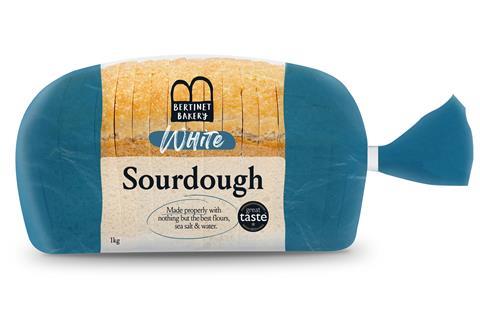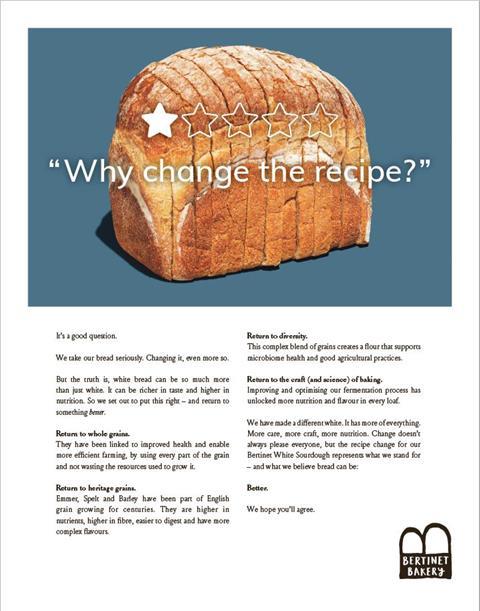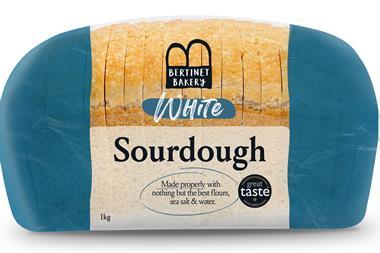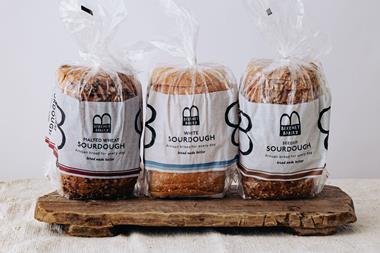
Bertinet Bakery has responded to the backlash around a recipe change with an open letter national press campaign.
The business came under criticism after it added emmer, spelt and barley to its White Sliced Sourdough to increase its fibre content and provide a ‘more balanced flavour’. The move was part of a wider brand refresh, which included a packaging revamp.
However, as reported by The Telegraph, this sparked outrage among fans and a flurry of one-star reviews on Ocado including: ‘The new recipe simply isn’t very good’, ‘I will no longer purchase this because of the recipe change’, and ‘New recipe completely changed this bread, horrible now’.
Rather than bury the bad reviews, Bertinet Bakery has embraced them with a campaign created by strategic agency Ourselves. The full-page advertisement features a one-star review which says: “Why change the recipe?”
Below this, the bakery answers the question acknowledging that while some may not approve of the changes, it was done to ‘lead a change and return to better quality bread’.
The business, which is part of Bread Holdings, also disputed claims the recipe change was undertaken for cost-saving reasons, noting that the more diverse heritage grains are more premium in price but that no extra costs have been passed on to consumers.

“As our open letter to our consumers states, there’s only ever one good reason to change the recipe – to make the bread better, but we recognise leading change is never without risk and we’re facing into it,” said Tom Molnar, co-founder and CEO of Bread Holdings.
“We hope that by explaining the changes and why we made them, consumers can make their own more informed decisions about their bread choices and try our new White Sliced Sourdough for themselves.”
The new recipe, according to Bertinet Bakery, was inspired by white bread in the 1800s – long before the introduction of processed refined white flour widely used in commercial loaves today.
“We’re leading on these changes with the very best of intentions – to offer a better-quality bread and a different choice for British bread buyers,” Molnar added.





















![Gails_Tom_Molnar_Luchford_DJP_02032020_0720[1]](https://d3rctclhuobtt7.cloudfront.net/Pictures/380x253/6/5/9/249659_gails_tom_molnar_luchford_djp_02032020_07201_870976_crop.jpg)










No comments yet